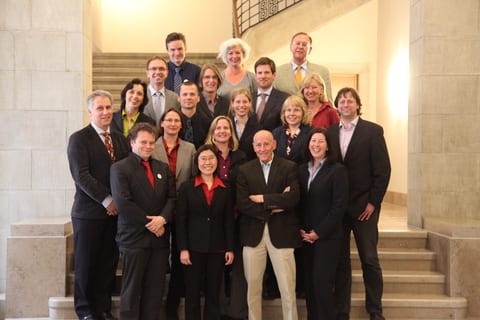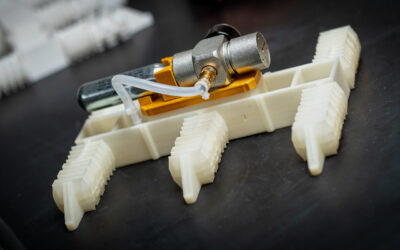Responding to growing concerns about the potential toxicity of nanomaterials (some of our previous coverage of this subject can be found here, here, and here), the German Federal Ministries for the Environment, Nature Conservation and Nuclear Safety (BMU), and Occupational Safety and Health (BAuA) have launched a joint safety research project with BASF SE. Long-term studies are planned to investigate potential chronic effects of nanoparticles in the lungs. Federal Environment Minister Dr. Norbert Röttgen welcomed this unique research collaboration: “With this large-scale project, Germany is not only assuming the global leadership in safety research for nanomaterials. This trustful cooperation between the Ministry, higher federal authorities and industry is also exemplary and unprecedented in its scope.” The studies are scheduled to run for four years and comply with the testing guidelines of the OECD (Organisation for Economic Co-operation and Development). Total project funding amounts to €5 million.
“No comparable long-term studies of this scope have yet been performed to determine the impact of nanomaterials. As a company, we want to seize the enormous opportunities offered by nanotechnology. We therefore also consider it our duty to clarify open issues and close gaps in our knowledge. In this way, we assume responsibility for our actions and towards society,” explained Dr. Andreas Kreimeyer, Member of the Board of Executive Directors and Research Executive Director of BASF. The chemical company has long experience in the field of nanosafety research and has internationally recognized scientific expertise. In this project, BASF will be conducting inhalation studies. The stewardship and overall coordination of the project rests with the BMU. The detailed coordination and subsequent evaluation of the results will then be performed by the BAuA, the Federal Environment Office (UBA), and the Federal Institute for Risk Assessment (BfR) as independent competent authorities. An external advisory committee of high-ranking, internationally recognized, independent scientists will be providing scientific support for the investigations. The committee will consist of researchers fr0m the University of Rochester (United States), the University Duisburg-Essen (Germany), the Fraunhofer Institute for Toxicology and Experimental Medicine (Germany), and the National Institute for Public Health and the Environment (Netherlands).
The goal of the study is to allow thoroughly researched statements to be made regarding the long-term effects of various important nanomaterials. One special focus is on investigating effects in the low-exposure range which are of major significance for the workplace and the environment. “This study will for the first time determine chronic effects of nanomaterials in the low-dose range. The resulting data will make it possible to estimate risks and establish limit values. With this project, we will be making a major advance in health and environment protection,” said Isabel Rothe, President of the Federal Institute for Occupational Safety and Health.


















